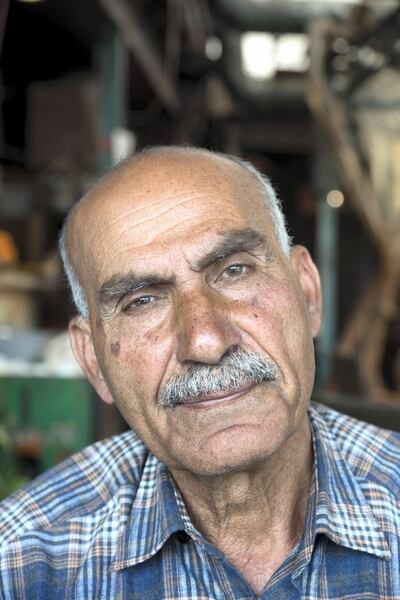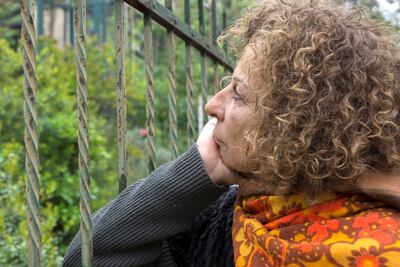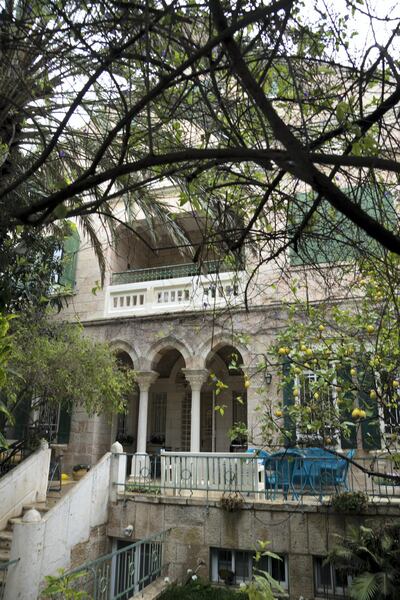Yacoub Odeh turns 78 on May 20 — just six days after the 70th anniversary of the founding of Israel. Over a Nescafe at the Jerusalem Hotel near the Old City’s Damascus Gate, he recalls growing up in the tranquil, prosperous village of Lifta and the violent months in 1948 that changed his life.
No more than two kilometres away, in East Jerusalem’s Ambassador Hotel, Huda Imam drinks mineral water and tells the bittersweet story of the beautiful home that her father, Farid Al Imam, built in West Jerusalem’s Bak’aa neighbourhood in 1938 and that they lost in May 1948.
What links Yacoub and Huda are the seminal, seismic events of the Nakba, or the catastrophe — the displacement of more than 700,000 Palestinians following the founding of Israel. This year marks the 70th anniversary since the unfolding of the event on May 15, yet the ghost of the Nakba still haunts Palestine.
“Lifta in my memory is like a picture with two faces. There is the beautiful life that I lived in Lifta before the Nakba,” says Yacoub.
He recounts every detail of the beautiful and iconic village, the abandoned remains of which are visible daily to thousands of commuters taking Road One, a main artery linking Jerusalem and Tel Aviv.
From facts and figures — there were 3,000 residents in 550 homes — to the idyllic memories of growing up in a proud, prosperous and tight-knit community.
__________
Read more:
Why Jerusalem is vastly different to the fantasy city described in my youth
Opinion: The 1967 war and the injustices that persist
__________
“Yes, it was a lovely life, a beautiful life. This is the shining picture," he said. “The other picture is one of a miserable life, under British colonial occupation and Zionist armed gangs, terrorists.”
Yacoub describes in equal detail the series of deadly attacks by Jewish militias and subsequent counter attacks by Liftawis.
Lifta's strategic importance — between Jerusalem and Jaffa-Tel Aviv — made it the focus of Jewish attacks.
He recalls being home with his younger brother and mother when their home came under fire. He recounts his brother's screams, certain that their mother had been shot. He remembers the funerals of the men and women killed in the struggle for Palestinians rights.
Once, in March, Yacoub's father led the family along a path to escape an attack on the village. Two bullets hit his father between the legs, piercing only the fabric of his traditional clothing. After climbing a hill, they jumped onto a truck with four other families. His father returned to defend the village while the truck set off for safety.
“Our driver went to Latrun, and from there to Beitunia to Ramallah, and to Al Bireh. And that’s when we became refugees."
“We had nothing, only the clothes on us because we believed we would be returning to Lifta the next day, that we were going back. The next day we were knocking on doors, asking for food. We had nothing," said Yacoub.

For Huda, her greatest loss was the house her father built when he was only 25 — a traditionally Palestinian home in an affluent neighbourhood of West Jerusalem.
“My father was forced out of his home. I’m told that as he left his house for the last time, he had his Quran in his left hand and his mum’s hand in his right hand.” They fled to their old family home in the Old City, just a few kilometres away.
The memory of the house has become an emotional and political obsession. It is a link to her father, her culture, her roots.
After the Six Day War in 1967, her father took the family to see the house for the first time since he had been forced to leave. Seven-year-old Huda was excited to see her father's home.
“I saw the Askadinya trees, the lemon trees, the balcony where he would tell us he’d have his morning coffee every morning with his mum," Huda recalled. "Then suddenly an Israeli woman came out with her daughter and their dog, yelling at us, telling us to leave. It was the first time I truly saw the sadness and distress in my father’s face, and I felt a certain attachment to my father and the house.”
In the late 1990s her job in Bethlehem took her past her father's home on a daily basis. One day Huda stopped outside the house and saw that it was being renovated and developed. She spoke to the Palestinian labourers and explained that this was once her father's home. She asked if she could go inside. They were wary of letting her through, but allowed her. It was a brief and intoxicating exploration of her family history.
She noticed that some of the original floor tiles had been lifted, so she asked the stone mason if she could take a few. He reluctantly agreed. She returned on several occasions until the labourers had to ask her to stop coming or risk getting them in trouble. She reluctantly did so.
Huda incorporated the tiles into her own family home, where she lives with one of her sons and her mother, in Sheikh Jarrah, in East Jerusalem.
She has appealed to Israeli courts in an attempt to win her house back, but has failed because of the "absentee" law — an Israeli measure designed to prevent Palestinians from returning to their ancestral homes. Under this law, the state could confiscate the homes of Palestinians who fled to countries that were at war with the nascent Jewish state.
Huda conducts alternative tours in Jerusalem and has taken both journalists and tourists to see her father's home. She was arrested on several occasions.
It's essential, says Huda, that today's occupants be aware of their role in the perpetuation of a historical injustice.

Yacoub has also turned to the Israeli justice system to try to stop his birthplace from turning into a luxury holiday resort. After serving 17 years in prison for being a member of the Popular Front for the Liberation of Palestine (PFLP), a political party that Israel has outlawed, Yacoub focused on a career in human rights to try to preserve Lifta. He is the head of the Committee to Protect Lifta Heritage and Culture.
So far the Israeli courts have not granted planning permission, but it seems only a matter of time and formality before ground is broken, transforming Lifta forever. Yacoub and his colleagues are working tirelessly to save the village through education and by raising awareness, providing tours and activities inside the village, filming documentaries and involving the media.
A new Jewish settlement can be spotted in the heart of a Palestinian area in occupied East Jerusalem, on the road between her father's old home and her current house in Sheikh Jarrah.
A stone's throw away from her home a new yeshiva — a place of study for Jews — has been built, further encroaching on the Palestinian neighbourhood. It makes her feel vulnerable, she says, as many Palestinian families here have been evicted by settlers. The Nakba continues, she says, through the same means, only slower.
__________
Read more:
With the Nakba, Palestinian pain is never ending
Palestinian family evicted from Jerusalem home of 50 years
__________
“We’re all worried about what’s happening here,” she explains. “Despite all of the diplomatic missions here — what the hell are they doing [about it]? — the Israelis are infiltrating.”
Yacoub agrees. “The Nakba is continuing but it has different shapes. They didn’t just destroy our homes, they destroyed our lives — our economic life, cultural life, social life, our health care — all of our life.”
But he remains hopeful and defiant. “Ben Gurion and Golda Meir said the older generations of Palestinians people will die and the young generations will forget the Nakba," said Yacoub. "But I say to them: Shut up! I was small and I didn’t forget. Why? Because my father planted that in me, and I am planting it in other generations. We will never die, we will never forget our right to return to Lifta.”


